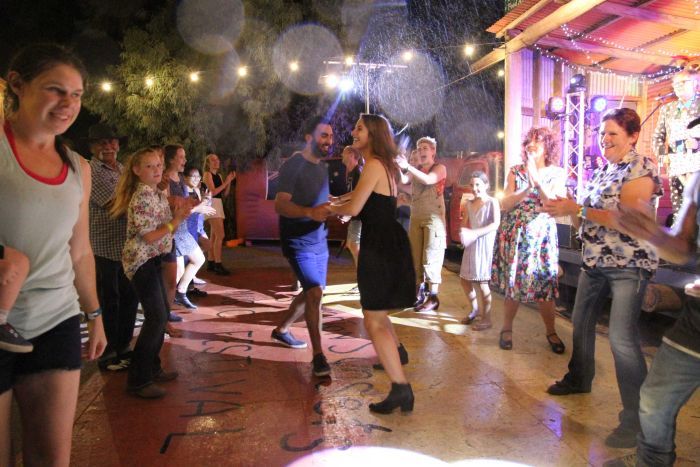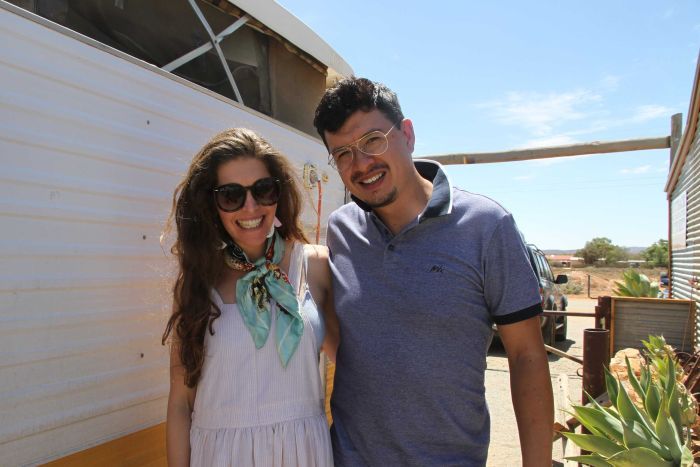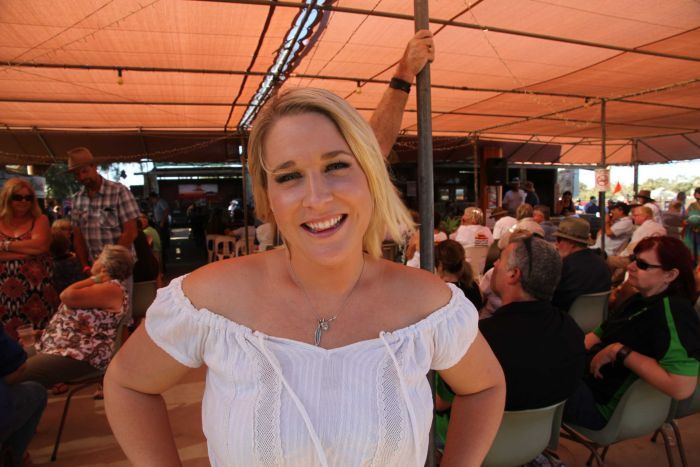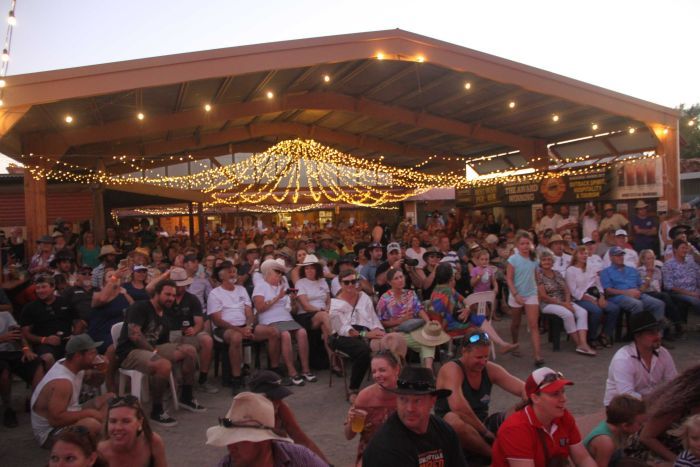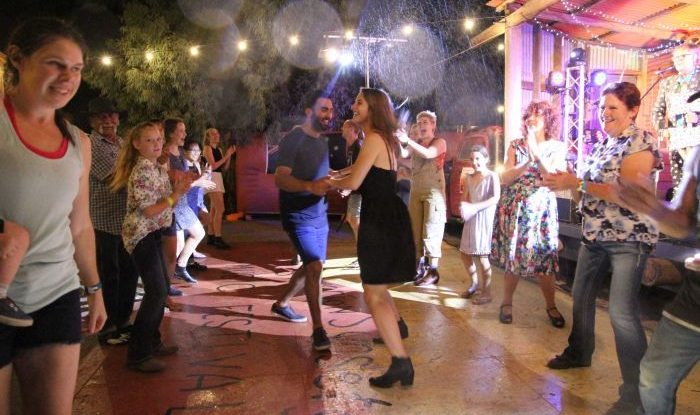
In an era of stadium gigs and mega-festivals, some musicians are turning their sights to regional and rural towns, bringing new music to places often forgotten by the entertainment industry.
From a pub festival in a ghost town, to a Melbourne ‘indie-label’ touring regional Australia, and a country music star reviving country halls — musicians are getting creative to find new audiences.
Beyond the city limits
Fanny Lumsden won a golden guitar award for New Talent of the Year in 2017, but she has been touring country halls across the country for seven years, an idea that started as a way to raise funds and morale after floods in regional New South Wales.
If anyone has busted the myth that there is no audience for live, original music in regional and remote Australia, it would be Lumsden.
“We had one hall recently that had 250 capacity and 500 people showed up,” she said.
“These shows are out in the middle of paddocks, halls that are hundreds of k’s out of town.
“So, all that stuff about ‘Oh you can’t put on a show out there; no-one will come’ — yeah you can.”
There has long been a tradition of musicians from regional areas heading to the city to find audiences, but a growing movement has returned to the country.
Another Golden Guitar winner, Catherine Britt, said country music had a lot to gain from returning to its roots.
“I think one of the major problems with country music suffering with attendances in city areas and along the coast is that we’ve taken country music out of the country,” she said.
In an effort to reconnect country music to country audiences, Ms Britt recently held the inaugural Silverton Sunsets Music Festival, in a tiny far-west New South Wales town, with a population of just 86.
“One of my motivations for doing this festival is to bring country music back out here where we’re relating directly to the people we’re singing songs about,” she said.
“When we’re singing these songs to them we’re sort of singing their truths and their stories.
“We’re bringing the country back to the country.”
Joe Alexander runs independent Melbourne label Bedroom Suck Records and recently branched out to a touring company Great Southern Land Touring.
He said the chance to get out of the city with a band was an exciting one.
“It’s just the really exciting journey, to meet these people and have these experiences in places that we probably don’t normally get to visit,” he said.
‘No hierarchies or crap’
Mr Alexander said he wanted to use some of the momentum of his label to highlight good things happening in often-forgotten corners of the country.
“The idea is to turn the camera, turn the attention toward locals and the things they’re doing,” he said.
“Focusing on locals who are in those regional areas making music, or active in the arts, or putting on gigs.
“So many incredible stories to tell so many people out there doing amazing things.”
Fanny Lumsden said touring in regional areas provided a uniquely egalitarian experience for musicians and audiences.
“There’s no hierarchies or crap; it’s just people coming together and having a good time and appreciating what you’ve got to offer,” she said.
“As long as you’re appreciative of them and what they have to offer as well.”
Mr Alexander said while most country audiences were enthusiastic supporters of something new in town, he found some places were not always receptive to original music.
“Some places we would come to it would just be the perfect gig, everyone was excited to see a band coming through, those shows were amazing,” he said.
“But in the more transient communities, with more backpackers, you were kind of expected just to play covers and entertain the dinner crowd at the pub.
“That interaction wasn’t quite as exciting as some of the others.”
But Mr Alexander said he hoped live music would inspire a new generation of musicians that would not have any other chance of seeing what a live, original performance looked like.
“You might see a young kid at the show sort of watching the band,” he said.
“You know that kid probably goes home, and wants to be in a band, and that might encourage them to be creative.”
The challenges
While there is a willingness from bands to play in regional areas, and enthusiasm in the local community, travelling vast distances with instruments and equipment is not cheap.
“None of them are coming out here making a huge amount of money; they’re doing it for the love of being out here and because they’re my good friends, and I’m very grateful,” Catherine Britt said.
“At the end of the day it’s a business, you’ve got to pay your bills.
“I hate that because it’s an art, but you know, you can’t go broke doing art either.”
This Article Was Originally Posted at www.einnews.com
http://www.einnews.com/article/434689584/cTRZ-7BX03t2DCjY?ref=rss&ecode=N1bP1tH84JZ33sYs
